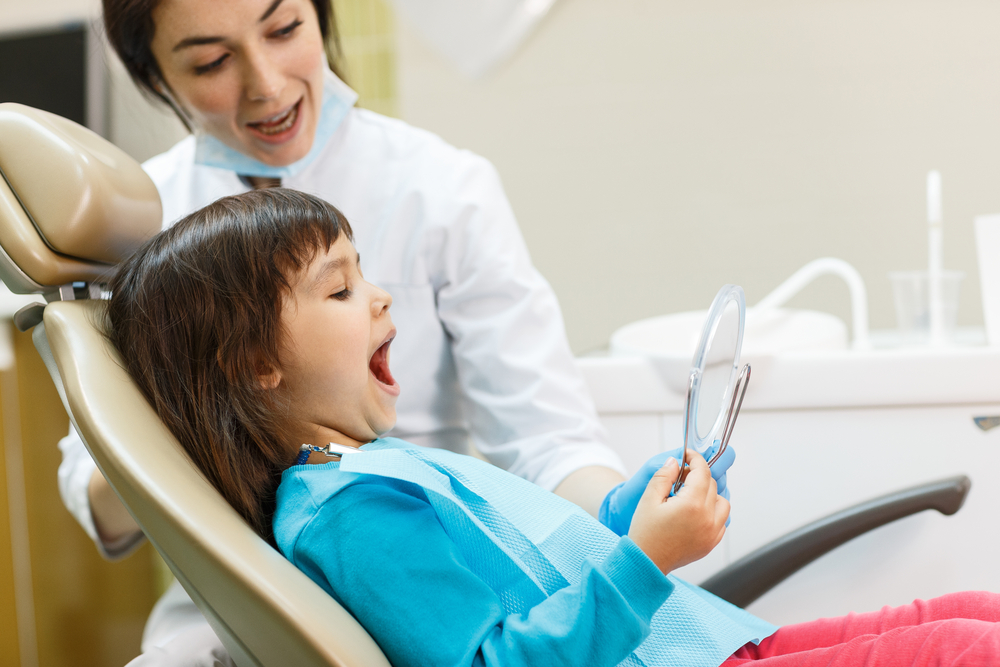
Dental cleanings for children involve removing plaque and tartar that accumulate on the teeth, which are often missed by regular brushing and flossing at home. These professional cleanings are performed by a pediatric dentist or a dental hygienist who specializes in treating children. They have the expertise to handle young patients with care, making the dental cleaning experience as comfortable and as enjoyable as possible. This not only helps in keeping your child's teeth clean but also inculcates a positive attitude towards dental care from a young age.
Common Dental Issues in Children and How Regular Cleanings Help
Children are particularly susceptible to a range of dental issues, with tooth decay leading the charge. Often referred to as dental caries, tooth decay is the most prevalent chronic disease among children in many countries. It arises from the accumulation of plaque - a sticky film of bacteria that feeds on the sugars in food and drinks, producing acids that erode the tooth enamel. If left unattended, this can lead to cavities, pain, and even tooth loss. Regular dental cleanings play a crucial role in preventing this by removing plaque and tartar buildup, thus reducing the risk of cavities.
Another common issue is gum disease, which can range from mild gingivitis to more severe forms, such as periodontitis. In its early stages, gum disease may be virtually symptom-free, making it difficult for parents to detect. During regular dental cleanings, pediatric dentists can spot early signs of gum disease and take appropriate measures to treat it before it escalates.
Besides preventing these common dental issues, regular cleanings also provide an opportunity for pediatric dentists to apply dental sealants and fluoride treatments. These preventive measures are highly effective in protecting the teeth against decay. Dental sealants are a protective coating applied to the chewing surfaces of the back teeth, where most cavities in children are found. Fluoride treatments, on the other hand, help strengthen the enamel, making it more resistant to decay.
Factors Influencing the Frequency of Dental Cleanings for Kids
Determining the optimal frequency of dental cleanings for children is not a one-size-fits-all affair. Several factors come into play, influencing how often your child should visit the dentist for a cleaning. One of the primary factors is the child's age. Younger children, for instance, may require more frequent visits due to their developing dental structure and their evolving brushing and flossing habits. As children grow older and become more adept at maintaining their oral hygiene, the frequency of required dental cleanings may decrease.
Another critical factor is the child's risk of dental issues. Children who are more prone to cavities or gum disease, whether due to genetic predisposition, diet, or oral hygiene practices, may need to undergo dental cleanings more frequently. Pediatric dentists assess each child's individual risk to tailor a dental care plan that best suits their needs. Additionally, children with orthodontic appliances, such as braces, may require more frequent cleanings to prevent food particles and plaque from accumulating in hard-to-reach areas.
Guidelines and Recommendations for Pediatric Dental Visits
Navigating through the guidelines and recommendations for pediatric dental visits can help parents ensure their children receive the appropriate level of dental care. The American Academy of Pediatric Dentistry (AAPD) advises that children should have their first dental visit by the age of one or within six months after the first tooth erupts. This early visit is crucial for establishing a dental home for your child, where their oral health can be monitored, and any potential issues can be addressed promptly.
Following the initial visit, the AAPD recommends that children undergo dental check-ups at intervals determined by their dentist, based on the individual child's needs and risk factors. Typically, it is suggested that children receive dental cleanings every six months. However, some children may need more frequent visits, while others may do well with less frequent check-ups. The goal of these guidelines is to provide a framework that can be customized to meet the unique oral health needs of each child.
It's important to note that these recommendations serve as a starting point. Your pediatric dentist is best equipped to determine the optimal frequency of dental cleanings for your child, considering the various factors that influence their oral health. Regular communication with your dentist and adherence to the recommended schedule of dental visits are key to ensuring your child's oral health is on the right track. By doing so, you can help lay the foundation for a lifetime of healthy smiles.
Schedule Your Child’s Next Dental Cleaning with Colwick Pediatric Dentistry Today
The journey of maintaining your child's oral health is a collaborative effort that begins with understanding the pivotal role of pediatric dentistry and the importance of regular dental cleanings. These cleanings are instrumental in preventing common dental issues such as tooth decay and gum disease, which can have lasting effects on your child's overall health and well-being. By considering the factors that influence the frequency of dental cleanings and adhering to the current guidelines and recommendations, you can ensure that your child receives the appropriate level of dental care.
Take the next step towards safeguarding your child's oral health by scheduling their next dental cleaning today, visit Colwick Pediatric Dentistry at our office in Cleburne, Texas, or call (817) 382-3029 to book an appointment today.







